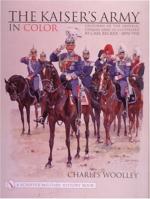|
This section contains 3,999 words (approx. 14 pages at 300 words per page) |

|
SOURCE: "The Heavenly City: A Too-ingenious Paradox," in Carl Becker's Heavenly City Revisited, edited by Raymond 0. Rockwood, Cornell, 1958, pp. 141-55.
In the following essay, Bowen criticizes The Heavenly City for its assumption that contemporary philosophical fashions establish the final validity of beliefs of an earlier age.
Carl Becker's book about the eighteenth-century Philosophers is nearly as difficult to write about as it is easy to read. The odds are, in the first place, that any commentary will be less lively and less persuasive than the original. To praise it seems superfluous, considering the large number who are already convinced that it is a masterpiece. To find fault with it seems, by the same token, presumptuous or—in view of its many merits—ungracious. The book and its thesis must be taken seriously because of Becker's stature as a historian and because of the tremendous influence his book has...
|
This section contains 3,999 words (approx. 14 pages at 300 words per page) |

|


